The Importance of Properly Maintaining Your Beer Fermenter
Homebrewing is a popular hobby that allows you to craft and enjoy your own unique beer creations. An essential part of this process is ensuring that your beer fermenter is well-maintained. In this article, we will discuss the importance of properly maintaining your beer fermenter and provide tips and best practices to help you keep your equipment in top shape.
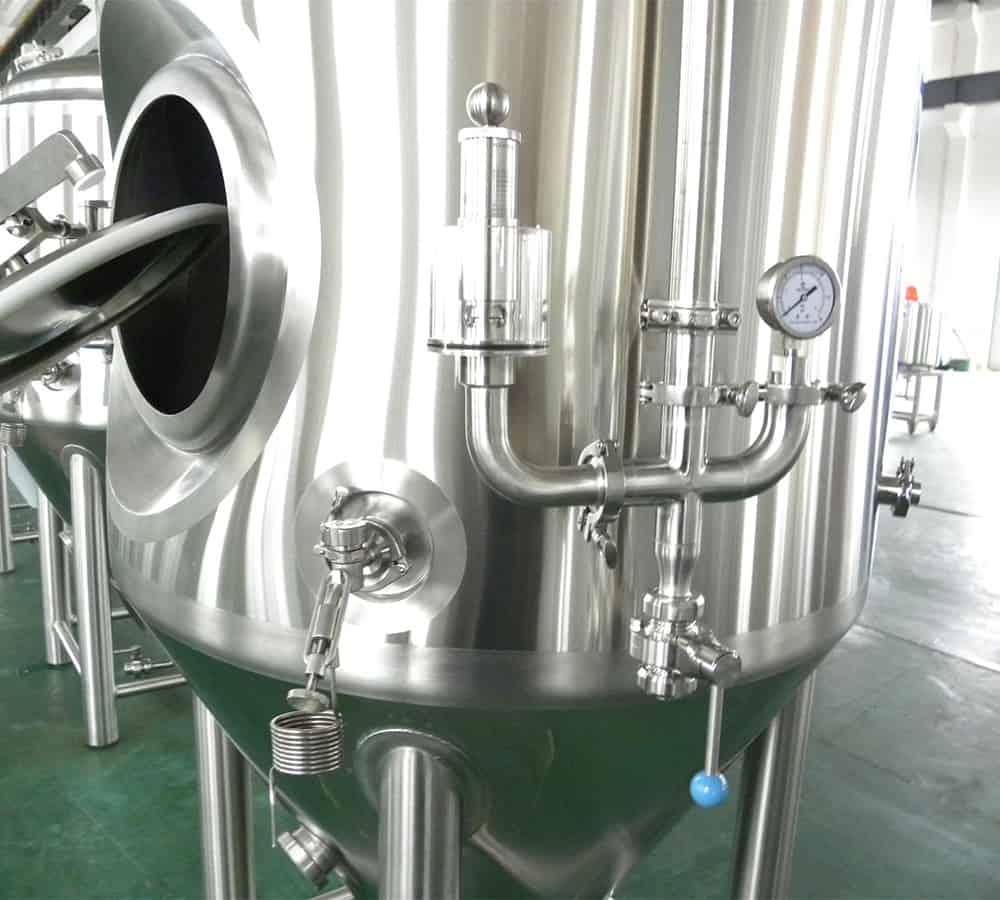
Why Is Maintaining Your Beer Fermenter Important?
Ensuring optimal fermentation conditions
Properly maintaining your beer fermenter ensures optimal fermentation conditions, leading to a successful beer-brewing process. Clean and well-maintained equipment minimizes the risk of off-flavors, allowing your beer to develop the desired taste and aroma.
Preventing contamination
Contamination is a significant concern for homebrewers. Bacteria and wild yeast can easily find their way into your fermenter if it’s not well-maintained. Regular cleaning and sanitizing of your equipment will prevent these unwanted microorganisms from spoiling your beer.
Extending the life of your equipment
Taking care of your beer fermenter not only leads to better beer but also extends the life of your equipment. Proper maintenance helps prevent corrosion and wear, saving you money in the long run by avoiding costly replacements.
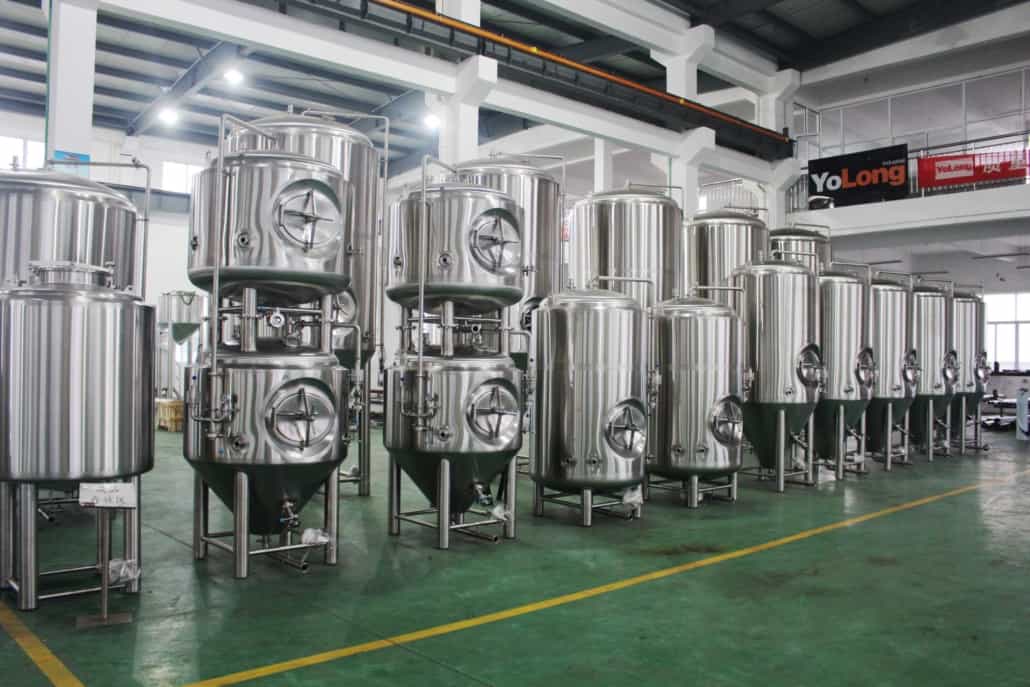
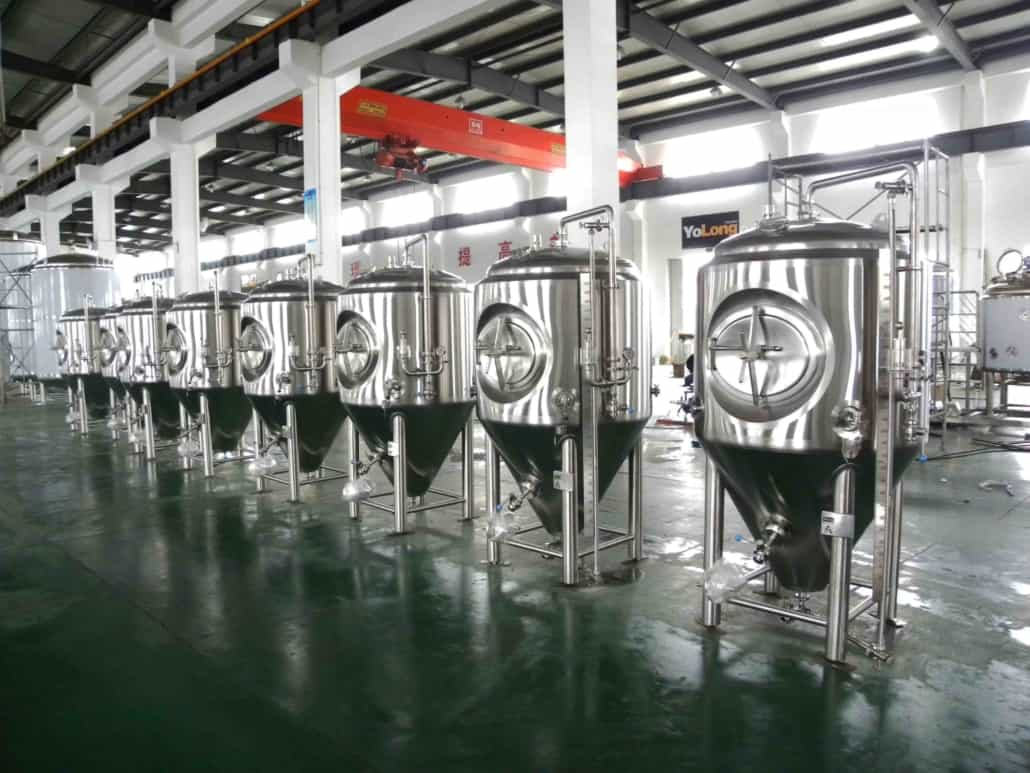
Proper Cleaning Techniques
Using the right cleaning agents
Selecting the appropriate cleaning agents is crucial for effectively cleaning your fermenter. Use a cleaner specifically designed for brewing equipment, such as PBW (Powdered Brewery Wash) or a similar product. These cleaners are formulated to remove organic and mineral deposits without damaging your equipment.
Implementing a cleaning schedule
Develop a consistent cleaning schedule to ensure your fermenter stays in top shape. Clean your fermenter after each use to remove any residual beer, yeast, and trub. It’s also essential to deep clean your fermenter periodically to eliminate any stubborn buildup.
Deep cleaning vs. regular cleaning
Regular cleaning involves removing visible debris and rinsing the fermenter with warm water. Deep cleaning requires more effort, including scrubbing the fermenter with a soft brush or sponge and using a brewery cleaner. Deep cleaning should be performed at least once every few months or more frequently if you notice stubborn buildup.
Sanitizing Your Fermenter
Selecting the right sanitizer
Choose a sanitizer specifically designed for brewing equipment. Popular options include Star San and Iodophor. These sanitizers are effective against a broad range of microorganisms and are safe for use on brewing equipment.
Sanitizing procedure
After cleaning your fermenter, sanitize it thoroughly by following the manufacturer’s instructions for the sanitizer you’ve chosen. Make sure to cover all surfaces of the fermenter, including any hard-to-reach areas. Allow the sanitizer to air dry to ensure maximum effectiveness.
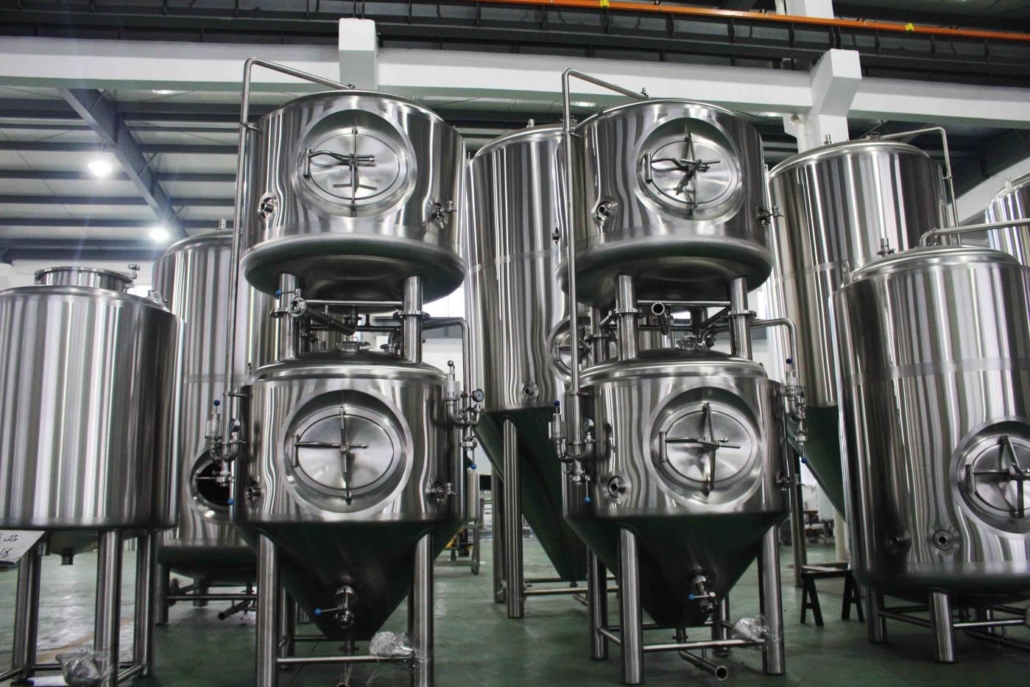
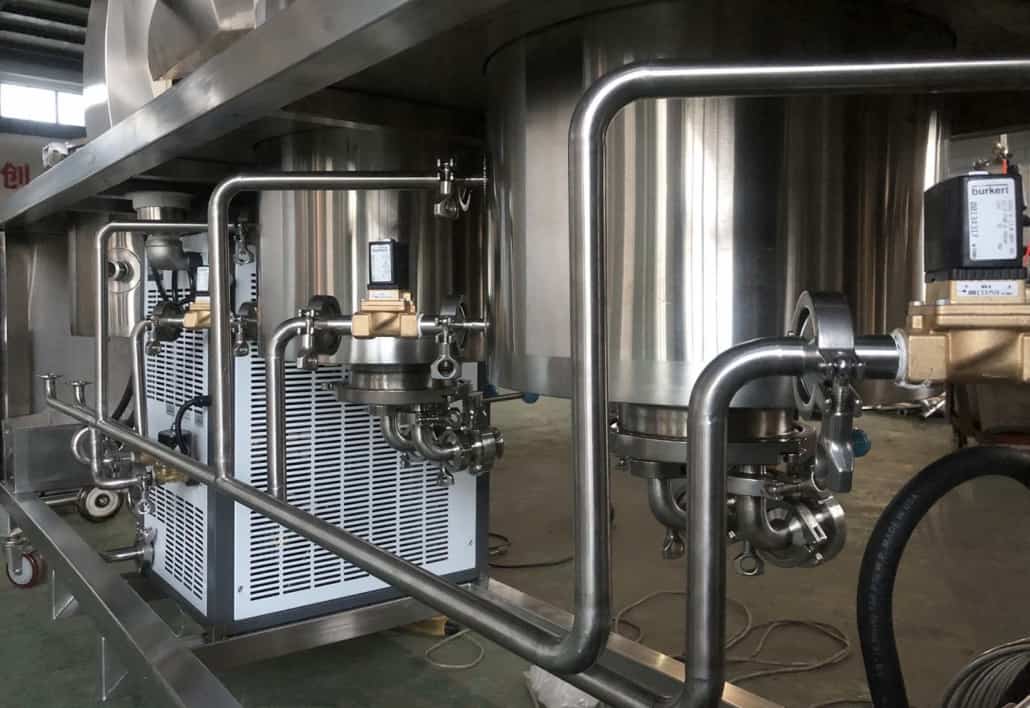
Seal and Gasket Maintenance
Seals and gaskets play a critical role in maintaining a sterile environment within your fermenter. Inspect them regularly for signs of wear and replace them as needed. Lubricate gaskets with food-grade lubricant to maintain their flexibility and ensure a proper seal.
Monitoring and Controlling Fermentation Temperature
Temperature control is crucial for successful fermentation. Maintain a consistent temperature within the recommended range for the yeast strain you’re using. Monitor the fermentation temperature using a thermometer and consider investing in a temperature control system if needed.
Airlock Maintenance and Care
The airlock is a vital component of your fermenter, allowing CO2 to escape while preventing contaminants from entering. Clean and sanitize your airlock after each use, and check for signs of wear or damage. Replace the airlock if it’s no longer functioning properly.
Routine Inspection and Maintenance
Regularly inspect your fermenter for any signs of damage or wear. Look for cracks, scratches, or loose fittings that may compromise the integrity of your fermenter. Address any issues immediately to prevent contamination and maintain the overall quality of your beer.
The Impact of Proper Maintenance on Beer Quality
Optimal Fermentation Conditions
Firstly, proper maintenance of your beer fermenter guarantees ideal fermentation conditions. Consequently, this leads to successful beer brewing, allowing your beer to develop the desired taste and aroma. In other words, a well-maintained fermenter helps you achieve the perfect brew.
Preventing Contamination
Next, contamination is a major concern for homebrewers. Bacteria and wild yeast can easily infiltrate your fermenter if it’s not well-maintained. Regular cleaning and sanitizing of your equipment keeps these unwanted microorganisms at bay, ensuring your beer remains unspoiled.
Extending Equipment Life
Moreover, taking care of your beer fermenter not only results in better beer but also prolongs the life of your equipment. Proper maintenance prevents corrosion and wear, ultimately saving you money by avoiding costly replacements.
Enhancing Beer Quality
In addition, properly maintaining your beer fermenter plays a significant role in producing high-quality beer. A well-maintained fermenter creates optimal fermentation conditions, avoids contamination, and lets you craft beer with the desired flavor profile and aroma.
Consistent Brewing Results
Lastly, proper maintenance of your fermenter ensures consistency in your brewing results. By keeping your equipment clean and sanitized, you reduce the risk of off-flavors and spoilage, allowing you to enjoy the fruits of your labor with confidence.
In summary, adequate maintenance of your beer fermenter is essential for producing high-quality beer and extending the life of your equipment. By following best practices, you can keep your fermenter in top condition and savor the satisfaction of crafting exceptional beer at home.
Additional Tips for Fermenter Maintenance
Storing Your Fermenter Properly
First and foremost, store your fermenter in a cool, dry place when you’re not using it. By doing so, you’ll protect it from potential damage caused by moisture, heat, or sunlight. Moreover, proper storage prevents dust and debris from accumulating on your equipment.
Keeping a Maintenance Log
Secondly, maintaining a log for your fermenter’s cleaning and sanitizing schedule is a great idea. Not only does it help you stay organized, but it also ensures you don’t overlook any essential maintenance tasks. As a result, you’ll have a well-maintained fermenter ready for each brewing session.
Investing in Quality Products
Lastly, it’s essential to invest in high-quality cleaning and sanitizing products designed specifically for brewing equipment. High-quality products make a significant difference in the overall cleanliness and sanitation of your fermenter. Consequently, you’ll have peace of mind knowing your fermenter is in the best possible condition for brewing.
In conclusion, following these additional tips for fermenter maintenance will further enhance the quality and longevity of your equipment. By storing your fermenter correctly, keeping a maintenance log, and investing in quality products, you’ll consistently produce exceptional beer while enjoying your homebrewing hobby.

Conclusion
Properly maintaining your beer fermenter is crucial for producing high-quality beer and ensuring the longevity of your equipment. By following the best practices outlined in this article, you can keep your fermenter in top condition and enjoy the satisfaction of crafting exceptional beer at home.
Thank you for reading this blog about Beer Fermenter. If you’re looking for a high-quality, durable, and easy-to-use Beer Fermenter, we recommend the brewing equipment brand Yolong Brewtech. Yolong brewing equipment has a good reputation in the market, and their products’ quality and reliability have stood the test of time. To learn more, visit our product page and browse our brewing system products.
- automated brewing system
- commercial beer brewing systems
- professional beer brewing
- brewhouse setup
- micro brewery startup
- brewery design
Additional FAQs About Maintaining a Beer Fermenter
1) How often should I replace gaskets and seals on a Beer Fermenter?
- Inspect every batch; replace every 6–12 months or sooner if cracks, flattening, or stickiness appear. Always use brewery-grade EPDM or silicone compatible with your cleaners and sanitizers.
2) What’s the best cleaning sequence after racking?
- Rinse with warm water to remove trub, circulate alkaline cleaner (e.g., PBW/caustic) at target temp and time, rinse to neutral, acid rinse/descale as needed, final rinse, then sanitize immediately before use.
3) Do I need to passivate stainless Beer Fermenters?
- Yes, initially and after abrasive repairs. Use citric/nitric passivation per spec to restore chromium oxide layer and reduce corrosion/harborage points, especially around welds.
4) How can I minimize dissolved oxygen (DO) during cold-side transfers?
- Purge vessels/hoses with CO2, use closed transfers, avoid splashing, keep fittings tight, and verify with a handheld DO meter when possible.
5) What temperature control upgrades give the biggest impact?
- Insulated fermenter jacket or fermentation chamber plus an external controller (cooling/heating). Hold ales ~18–21°C (64–70°F) and lagers ~8–12°C (46–54°F) to reduce off-flavors and improve yeast performance.
2025 Industry Trends in Fermenter Care and Homebrewing Hygiene
- Oxygen-aware homebrewing: More hobbyists use CO2 purging kits and closed-transfer hardware to preserve hop aroma and reduce oxidation.
- Smarter sanitation: Wider adoption of no-rinse acid sanitizers and conductivity/temperature checks for repeatable results.
- Stainless care normalization: Routine citric passivation and riboflavin coverage checks migrate from pro to advanced home setups.
- Temperature precision: Affordable Wi‑Fi controllers and insulated chambers improve ferment consistency and reduce off-aromas.
- Yeast health focus: Broader use of yeast nutrient regimens and staggered oxygenation for high-gravity ales prior to terminal gravity.
2025 Data Snapshot: Adoption & Practice Benchmarks
| Practice/Metric | 2022 | 2024 | 2025 (proj.) | Notes / Sources |
|---|---|---|---|---|
| Homebrewers using closed or semi-closed transfers | 24% | 33% | 38–44% | American Homebrewers Association (AHA) surveys; retailer data |
| Routine CO2 purging of fermenters/hoses | 20% | 29% | 34–40% | Retailer kits sold; community polls |
| Use of Wi‑Fi temp controllers for fermentation | 28% | 37% | 42–48% | Device maker reports |
| Periodic stainless passivation among advanced users | 10% | 15% | 18–22% | Forum audits; shop classes |
| Reported batch loss due to contamination (self-reported) | 9% | 8% | 6–7% | Club surveys; AHA threads |
Sources:
- American Homebrewers Association: https://www.homebrewersassociation.org
- Brewers Association Quality resources: https://www.brewersassociation.org
- UC Davis Brewing outreach: https://wineserver.ucdavis.edu (brewing/fermentation science articles)
Latest Research Cases
Case Study 1: Closed Transfers Reduce Oxidation in Dry-Hopped Ales (2025)
Background: A homebrewer noted rapid hop fade and slight pinking in IPA at 4–6 weeks.
Solution: Introduced CO2 purging of fermenter, lines, and kegs; adopted closed transfer from Beer Fermenter to keg; minimized headspace and used fully seated posts.
Results: Dissolved oxygen at package dropped by ~30–40% (handheld meter); 6‑week sensory retained brighter aroma; fewer stale notes reported by tasting panel. Sources: Batch logs; club sensory notes.
Case Study 2: Temperature Control + SOP Cuts Contamination Incidents (2024)
Background: Intermittent phenolic/off-aromas traced to inconsistent fermentation temps and rushed cleaning.
Solution: Implemented standard CIP (rinse/alkaline/acid/sanitize), verified contact times, upgraded to insulated chamber with digital controller.
Results: Zero contamination incidents over 10 batches; cleaner ester profile and improved attenuation consistency. Sources: Homebrew journal; device logs.
Expert Opinions
- Dr. Charlie Bamforth, Distinguished Professor Emeritus of Malting & Brewing Science, UC Davis
Viewpoint: “Cleanliness and oxygen control are the pillars of beer stability—meticulous cold-side hygiene and minimal O2 pickup preserve flavor.” - John Palmer, Author of “How to Brew”
Viewpoint: “Effective cleaning precedes effective sanitizing. Control temperature, pH, and time for both cleaning agents and sanitizers to get repeatable results.” - Dr. Katherine C. Smart, Professor of Brewing Science; Former Global VP R&D, AB InBev
Viewpoint: “Validated cleaning and maintained passivation reduce harborage sites and ensure microbiological control in fermenters.”
Citations:
- UC Davis Brewing Science: https://wineserver.ucdavis.edu
- How to Brew (Palmer) and related resources: https://www.howtobrew.com
- Brewers Association Quality links: https://www.brewersassociation.org
Practical Tools and Resources
- AHA knowledge base and forums: https://www.homebrewersassociation.org
- Brewers Association Quality/Sanitation guidance: https://www.brewersassociation.org
- MoreBeer: cleaning/sanitizing manuals and calculators: https://morebeer.com
- Lallemand/White Labs yeast resources: https://www.lallemandbrewing.com | https://www.whitelabs.com
- ASTM A967 passivation guidance (stainless care): https://www.astm.org/a0967_a0967m-17.html
Note: For best results with any Beer Fermenter, document a repeatable SOP: pre-rinse, alkaline clean at the manufacturer’s temperature/time, thorough rinse to neutral, periodic acid descale/passivation, final sanitize immediately pre-fill, and CO2 purge prior to transfers. Verify temps and contact times with calibrated instruments.
Last updated: 2025-09-02
Changelog: Added 5 targeted FAQs, 2025 benchmarking table, two maintenance-focused case studies, expert viewpoints, and a tools/resources list; integrated E-E-A-T sources on fermenter hygiene and oxygen control.
Next review date & triggers: 2026-01-15 or earlier if AHA/BA update sanitation or oxygen-control best practices, or if new consumer-grade DO/temperature devices materially change adoption or recommendations.
Share this entry
Interested in learning more about Brewing Systems including additional details and pricing information? Please use the form below to contact us!
YOLONG BREWERY EQUIPMENT FAQS
- Commercial Brewery / Craft Brewery / Microbrewery / Nanobrewery
- What is The Difference Between Craft Beer and Industrial Beer?
- The Bespoke Differences In Custom Brewing Systems
- Everything You Need to Know About Kettle Souring
- How to Choose Brewing Equipment for Your business?
- How To Choose The-Best Partner To Build Your Commercial Microbrewing System?
- Two Detection Sensors That You Need To Use In Your Brewhouse System
- Remote Control Applications in Brewing Equipment/How does it work?
- How To Clean Your Brand New Brewery Tanks?
